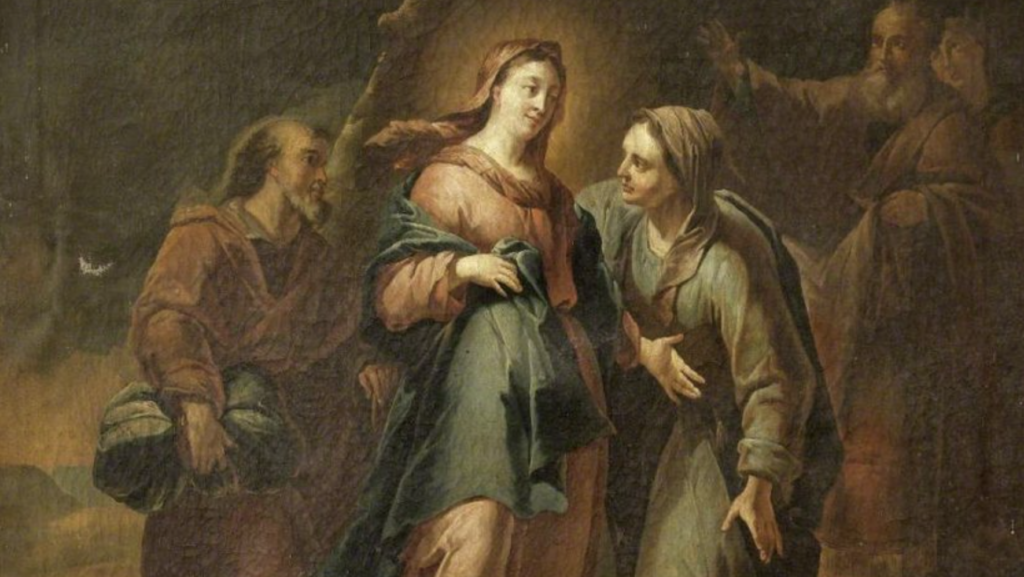Mic. 5:1-4 / Ps. 80:2-3, 15-16, 18-19 / Heb. 10:5-10 / Lk. 1:39-45
On this last Sunday before Christmas, the Church’s liturgy reveals the true identity of our Redeemer: He is, as today’s First Reading says, the “ruler … whose origin is from … ancient times.”
He will come from Bethlehem, where David was born of Jesse the Ephrathite and anointed king. God promised that an heir of David would reign on his throne forever.
Jesus is that heir, the One the prophets promised would restore the scattered tribes of Israel into a new kingdom. He is “the shepherd of Israel,” sung of in today’s Psalm. From his throne in heaven, he has “come to save us.”
Today’s Epistle tells us that he is both the Son of David and the only “begotten” Son of God, come “in the flesh.” He is also our “high priest,” from the mold of the mysterious Melchizedek, “priest of God Most High,” who blessed Abraham at the dawn of salvation history.
All this is recognized by John when he leaps for joy in his mother’s womb. Elizabeth, too, is filled with joy and the Holy Spirit. She recognizes that in Mary “the mother of my Lord” has come to her.
Elizabeth blesses Mary for her faith that God’s Word would be fulfilled in her. Mary marks the fulfillment not only of the angel’s promise to her, but of all God’s promises down through history. Mary is the one they await in today’s First Reading — “she who is to give birth.” She will give birth this week, at Christmas.
The Church in her liturgy and tradition has long praised Mary as “the Ark of the New Covenant.” We see biblical roots for this in the readings for the Fourth Sunday in Advent.
Compare Mary’s visitation to Elizabeth with the story of David returning the Ark of the Covenant to Jerusalem and you’ll hear interesting echoes.
As Mary “set out” for the hill country of Judah, so did David. David, upon seeing the Ark, cries out, “How can the Ark of the Lord come to me?” Elizabeth says the same thing about “the mother of my Lord.”
John leaps in Elizabeth’s womb, as David danced before the Ark. And as the Ark stayed three months in “the house of Obed-edom,” Mary stays three months in “the house of Zechariah.”
The Greek word Luke used to describe Elizabeth’s loud cry of joy (“anaphoneo”) isn’t used anywhere else in the New Testament. And it’s found in only five places in the Greek Old Testament — every time used to describe “exultation” before the Ark.
Coincidences? Hardly. The old Ark contained the tablets of the Law, the manna from the desert and the priestly staff of Aaron. In Mary, the new Ark, we find the Word of God, the Bread of Life, and the High Priest of the new people of God.

